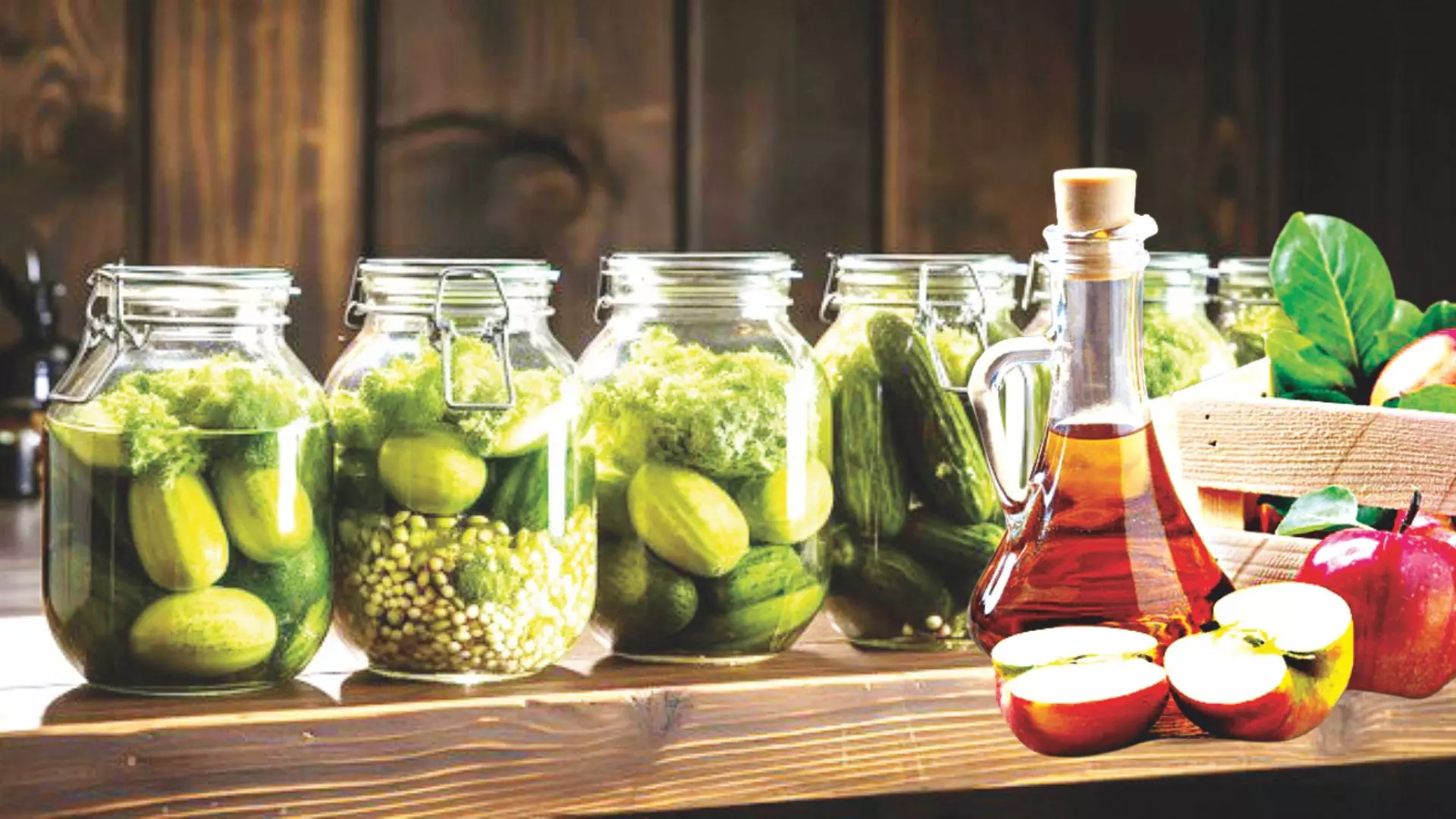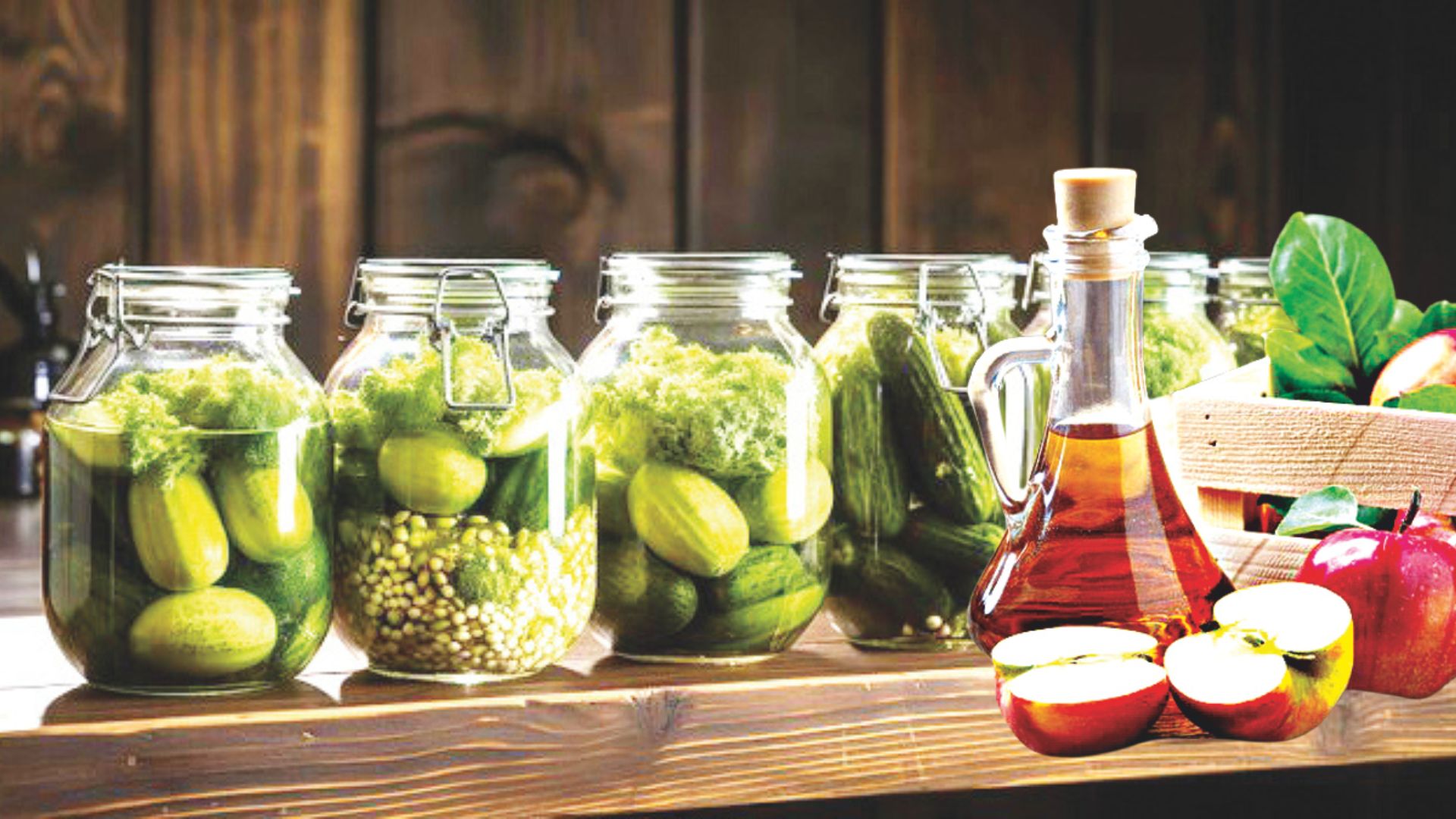
When it comes to managing diabetes, most people rely on a trio of diet, exercise, and medication. But what if a pantry staple — something as simple as vinegar — could help balance your blood sugar levels? It might sound a little too good to be true, but recent studies suggest that drinking a teaspoon of vinegar diluted in water before meals may help. Dr. V. Mohan, Chairman and Chief Diabetologist at Dr. Mohan’s Diabetes Specialities Centre, notes that “Different types of vinegar, such as apple cider, white, or balsamic, can be incorporated into a diabetes-friendly diet, with each offering unique flavors and potential benefits.” This adds a layer of flexibility to the idea, making it easy to tailor to your taste preferences.
Sweet-Sour Buzz
With over 77 million people in India managing diabetes, it’s clear that new tools to control blood sugar are always welcome. According to the International Diabetes Federation’s 2023 report, this number is expected to rise to 134 million by 2045. The key to vinegar’s effect on blood sugar is its acetic acid, which might sound complex, but it’s the main compound in vinegar. Acetic acid has been shown to slow down how quickly our body absorbs carbs, resulting in a slower, steadier release of sugar into the bloodstream. Imagine the difference between dumping a bucket of water onto a fire versus using a gentle trickle; the latter is far more manageable.
Dr. Mohan explains, “Vine-gar’s acetic acid can improve insulin sensitivity, allowing cells to better utilize glucose, which is essential for managing blood sugar levels.” This means that after a meal, your blood sugar doesn’t spike as drastically, putting less stress on your body’s insulin response.
One study even found that people who drank a bit of vinegar before meals had noticeably lower blood sugar levels compared to those who didn’t. Other research has shown that vinegar can improve insulin sensitivity by up to 34% in some individuals with type 2 diabetes.
Timing is Everything
A teaspoon before meals works wonders. Taking vinegar right before eating primes the acetic acid to do its job just as the carbs from your meal start breaking down. Dr. Mohan advises that “taking vinegar before meals has shown promise in reducing post-meal blood sugar spikes, which can be particularly beneficial for individuals with prediabetes or Type-2 diabetes.” About a teaspoon or two in a glass of water will do the trick. Just make sure to dilute it, as vinegar on its own can be harsh on your stomach and tooth enamel.
Beyond Blood Sugar
A study from the All India Institute of Medical Sciences (AIIMS) in 2023 found that consuming vinegar before meals can reduce post-meal blood sugar spikes by around 15-30% for people with prediabetes or type 2 diabetes, and it might also help with cholesterol. However, more research is needed to confirm the cholesterol benefits. There’s evidence that vinegar can increase feelings of fullness. For anyone managing both blood sugar and weight, this could be a bonus!
Being Mindful Helps
Before you start chugging vinegar, remember: it’s not a replacement for medication. “For those considering vinegar as part of their diabetes management plan, I recommend starting with small amounts and observing how your body responds,” Dr. Mohan advises. If you’re taking diabetes medications, keep an eye on your blood sugar levels, as vinegar can sometimes amplify the effects of these drugs. People with digestive issues like acid reflux should be cautious as vinegar’s acidity can worsen the condition. Dr. Mohan notes, “Vinegar’s acidity may not be suitable for everyone, particularly those with sensitive gastrointestinal systems.”
Adding a teaspoon of vinegar to your daily routine isn’t a magic bullet, but it’s a simple, affordable addition that might make a real difference in your blood sugar. A teaspoon a day might just be the easiest health hack you add to your routine this year.
Sweet & Sour Notes
• Consuming vinegar before meals can reduce post-meal blood sugar spikes by 15-30% for people with prediabetes or Type-2 diabetes (AIIMS)
• Vinegar can improve insulin sensitivity by up to 34% in some individuals with Type-2 diabetes
Vinegar Vibes I Add vinegar to your daily routine
Tiny Dose: Start with just half a teaspoon of water before meals. You can work up to a full teaspoon or two as your stomach adjusts.
Choose Your Vinegar: Apple cider vinegar is popular due to its mild taste, but white or balsamic vinegar works too.
Dilute It: Always dilute vinegar in a glass of water. It’s easier on your stomach and also protects your teeth from the acidity.
Flavor It Up: If drinking vinegar in water sounds unappealing, try it in a salad dressing or marinade. Mix one part vinegar with two parts olive oil, a pinch of salt, and some herbs.
Instant Pickle: Throw some cucumbers, carrots, or radishes in vinegar with a dash of salt, and you’ve got a quick pickle.
